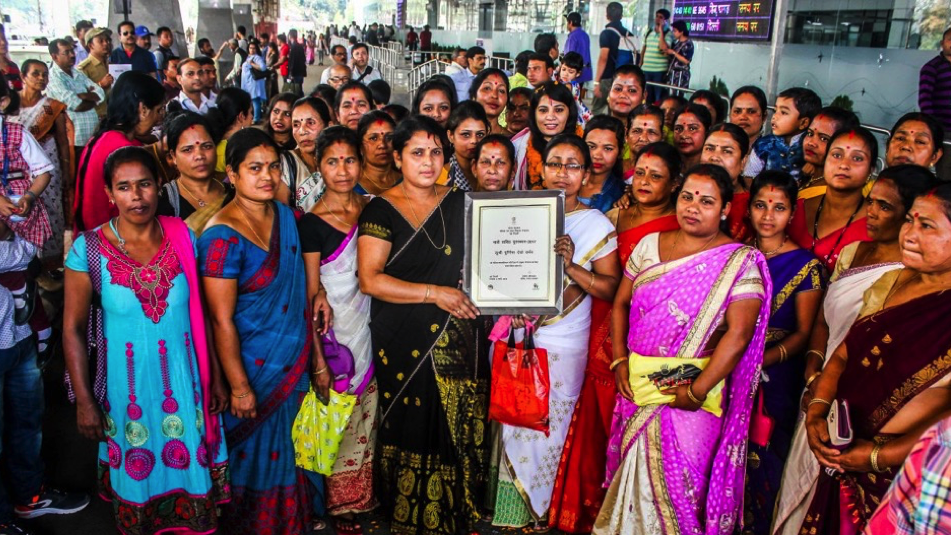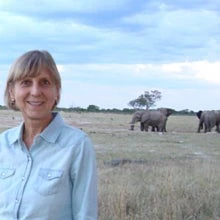
A common theme of our work on conservation projects has been the lack of networks for women to share their ideas and learn from others doing the same work.
Which is why we created an all-women’s network to support and empower women in nature conservation. It is called WiNN: the Women in Nature Network, and was founded in 2013 by the two of us and 12 other women.
WiNN is a volunteer-run network of women interested in nature conservation. It serves as a platform for women to interact and learn by sharing experiences and stories relevant to other women in order to enhance conservation impacts and also inspire the next generation of conservation leaders.
WiNN supports women-led conservation projects, has a mentoring program, creates WiNN chapters across the globe (eight so far), and hosts annual networking events. These have taken place in Argentina (2016), Mexico (2017), Guyana (2018), and this January in Guwahati, India, attended by over 70 women from India, Argentina, Bhutan, Guyana, Honduras, Mexico, Myanmar, Nepal, Sri Lanka, the United States, and Vietnam.
The International Finance Corporation’s (IFC) Hydro Advisory program supported five women from Nepal and one from Myanmar to participate in the WiNN India event with the aim of strengthening women’s capacity for sustainable development in these countries.
How an army of women saved the ‘hargila’ stork
Our co-host in India was conservation activist Purnima Devi Barman, who works with Aaranyak, a leading wildlife NGO based in Guwahati, India. In 2008 Purnima landed in a village to collect data on an endangered bird for her Ph.D. but instead became a passionate conservationist leading the effort to save the bird, the greater adjutant (Leptoptilos dubius), a member of the stork family. Known locally as “hargila”, large numbers once lived in Asia, but they have declined greatly, mostly due to habitat loss.
Purnima has organized communities and worked tirelessly to save this species by investigating its breeding behavior, rescuing and rehabilitating injured birds, protecting trees and nests, and working with policymakers and the community in the 10,000 people village where the highest density of birds is found. But Purnima’s strongest ally is the “Hargila Army”.
This brigade of 70 local women has been raising awareness and weaving the symbolic bird into artisan products that they sell. In 2017, Purnima received the green conservation award from the London’s Royal Geographical Society for her efforts.
Approaching conservation by building trust first
Most of the women who attended the India event work in conservation projects that engage communities just like Purnima has been doing. They said they always start by making connections with women in the villages. One of the attendees explained that before diving in an agenda with local villagers, she first listens to their challenges and builds trust through cooking and sharing meals. Other women expressed the importance of communicating what they can realistically deliver and avoiding promises they cannot fulfill.
The group agreed the main ingredient for success is maximizing women’s diversity of skills—whether technical, entrepreneurial, or as community leaders. It was truly an honor to be among this amazing group of women.
WiNN’s beginnings: connecting women in conservation from rural communities, forging exchanges

When we started WiNN, we focused on linking women from rural communities to other women working in natural resource management. Women like WiNN member Lan Thi Kim Ho, an environmental educator at Cuc Phuong National Park in northern Vietnam, often feel isolated in their conservation efforts, but through the WiNN network gain a sense of empowerment. Our first two events in Argentina and Mexico linked over 120 women from Argentina, Colombia, Guyana, Mexico, Peru, India, Kenya, Vietnam and the United States, and catalyzed the creation of WiNN chapters in all of these countries. To reach and support more rural women WiNN then organized an exchange between women from India and Guyana.
World Bank-supported Gorongosa Summit on women and national parks
We will be participating in the first summit on women and national parks in Mozambique from April 3–6, organized by the Gorongosa National Park, Mozambique's National Administration of Conservation Areas, the Carr Foundation, National Geographic, and the World Bank-led, GEF-funded Global Wildlife Program. Several women implementing GWP projects will attend and share their experiences working in wildlife conservation and crime prevention, along with others.
Please share your stories of women in conservation in the comment section below, we’d love to hear about them. And please watch some of the GWP’s videos that highlight women’s roles in nature conservation:
Restoring Malawi's Shire River Basin
Rowing a boat to protect Vietnam’s nature, langurs and livelihoods
Related:
Coverage of WiNN’s India event:



Join the Conversation